Yearning to go back to the 1960s or 1950s, when life was simpler and you could sing along to “Yesterday once more” on the LP player? Or wishing to follow the footsteps of Toru in Norwegian Wood, the novel about life in the 1960s? Actually the author Haruki Murakami was born in Kyoto, so riding a rusty bicycle and wearing a beret in the quiet streets between Marutamachi and Teramachi (Temple Street), you could easily slip into this time warp. You could almost hear the grandfather clock ticking in the background.
Deep in the heart of Kyoto city, away from the well-worn tourist paths of Gion and Higashiyama, there is a quiet narrow street called Ebisugawa dori. This is the street to go to for traditional Japanese furniture and curios, from wooden screens and period items to bamboo to kimono chests. Most first or second time visitors to Kyoto don’t know this street, and even after ten years I had no idea until I met Mr. Nakano, the Chair of the Kyoto Handicrafts Volunteer Guides Association. You could be rummaging here for hours uncovering all sorts of treasures and even more remarkable stories behind each article.
First you come across a row of shops selling just shoji , or Japanese doors There are doors used in the ancient storehouses with hexagonal metal mesh windows to stop the thieves from coming in, doors to divide rooms, doors for cabinets. Just touch and smell these doors, feel the wood grain and imagine from the marks what history these have witnessed. You can add character to any home with one of these doors.
Then there are shops selling just ceramics, and shops selling antique home wares. You can even pick up a pre loved Ebisu character for a bargain. Ebisu in traditional folklore represents good luck for workers, so it is only appropriate you see his appearance in Ebisugawa.
Then there is a “wire and scissors” store, which is a quaint name for a place where you rummage around for anything to do with metal. There is also a “new and old items” shop
In the heart of Ebisugawa dori is Miyazaki Emporium, a family owned company founded in 1856 which is continuing the tradition of beautiful Japanese style wood furniture, from kimono chests to everything that a Japanese bride would love to fit out her home. There is also a workshop opposite the Emporium in the north building where you can see master artisan hand making these kimono chests. It takes weeks for the furniture to be made, sculpted, sanded and air dried. This is truly a masterpiece heirloom for many generations to enjoy. Next to Ebisugawa dori is Teramachi, or Temple Street, traditionally a street full of temples, but now home to antiques, bookstores and electronic shops.
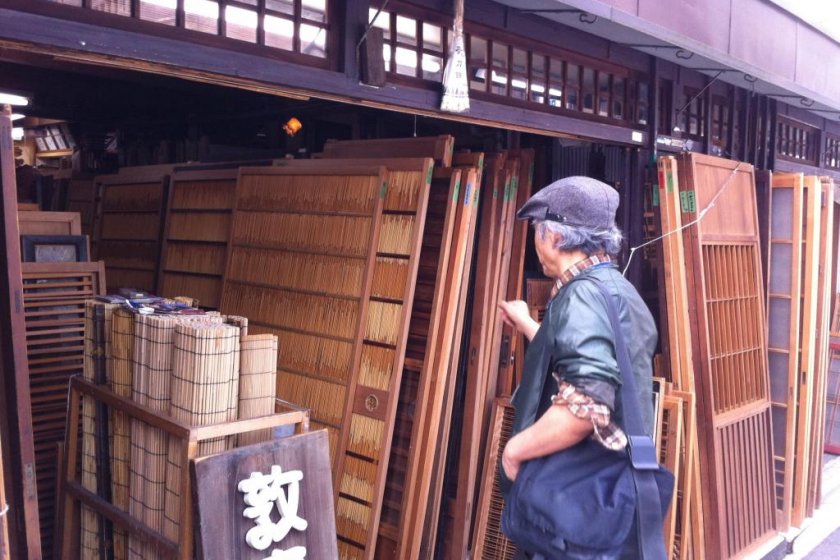
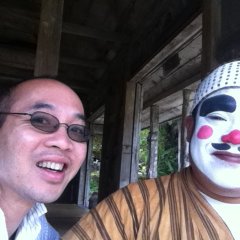


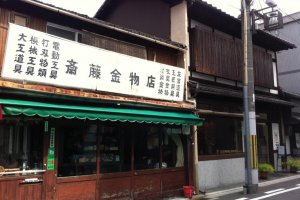
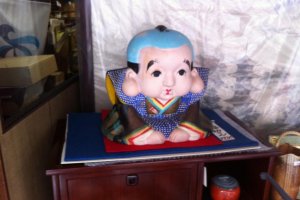

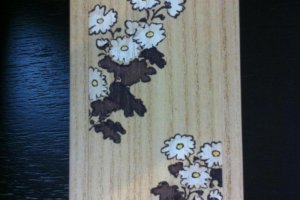


境町店」-67014.jpg)
























